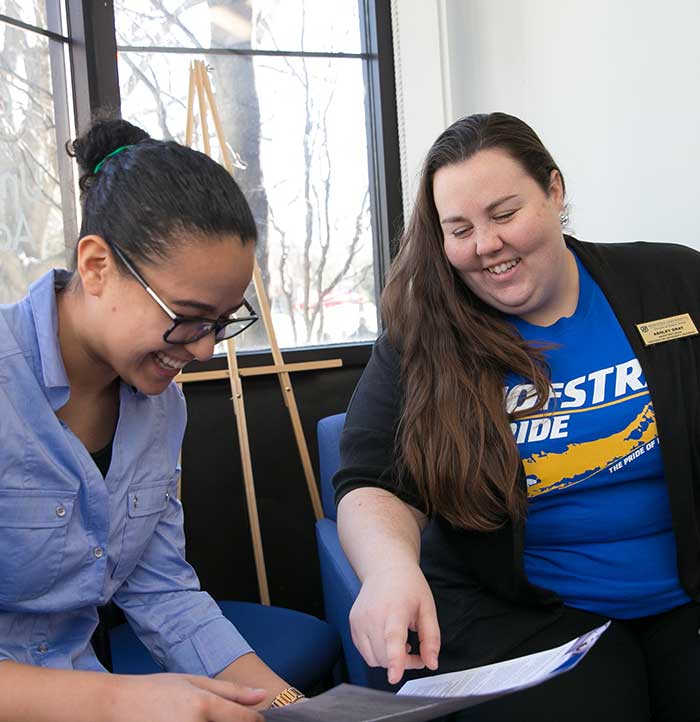Hofstra University is an institution committed to the development of students as individuals and as members of the greater Hofstra community. The Office of Community Standards helps educate students about Hofstra’s values as expressed in our P.R.I.D.E. Values. Students are expected to take an active role in encouraging all members of the community to maintain Hofstra’s behavior standards. The Office of Community Standards works closely with Residence Life, Public Safety, and a number of other departments to uphold community standards and carry out the student conduct process in a manner that respects both the rights of the individual and those of the community at large.
Standards & Guidelines
Policies
Read about policies regarding community standards at Hofstra University.

Addressing Behaviors
Conduct Process
Learn about the conduct process at Hofstra.

Contact Community Standards
Our Office
Room 240 Student Center
200 Hofstra University
Hempstead, NY 11549
Phone: 516-463-6913
Fax: 516-463-6291